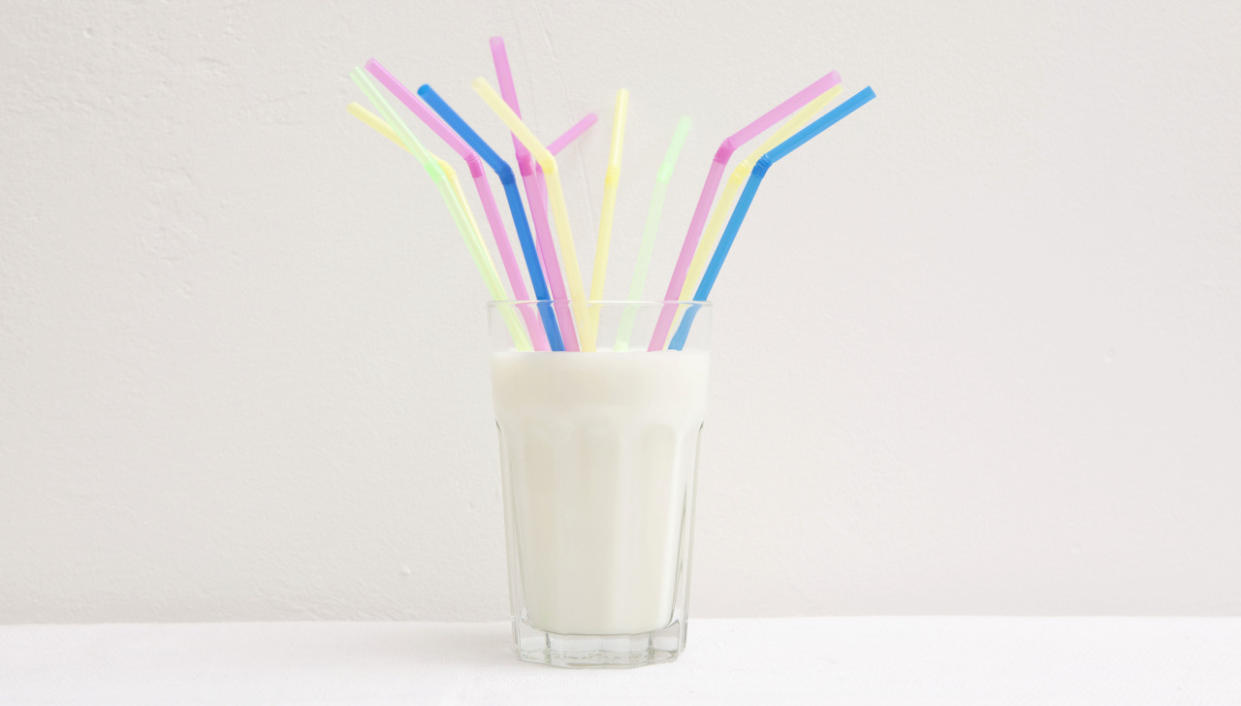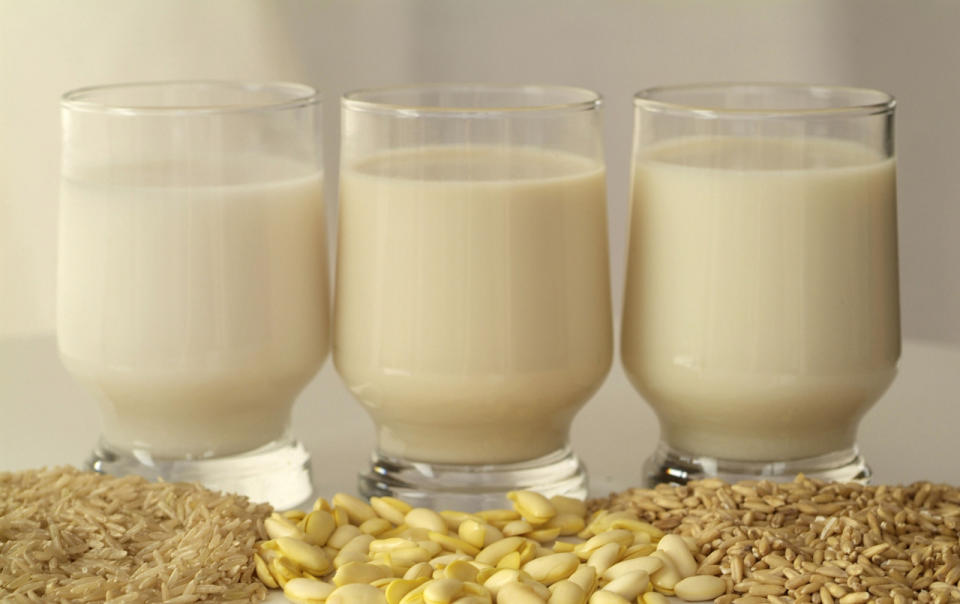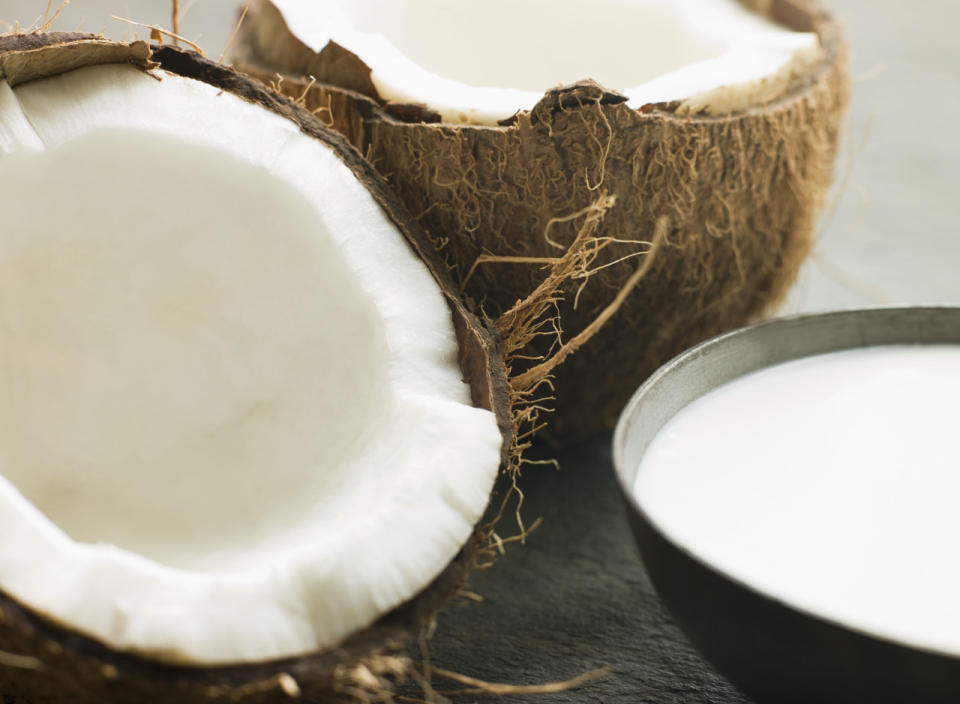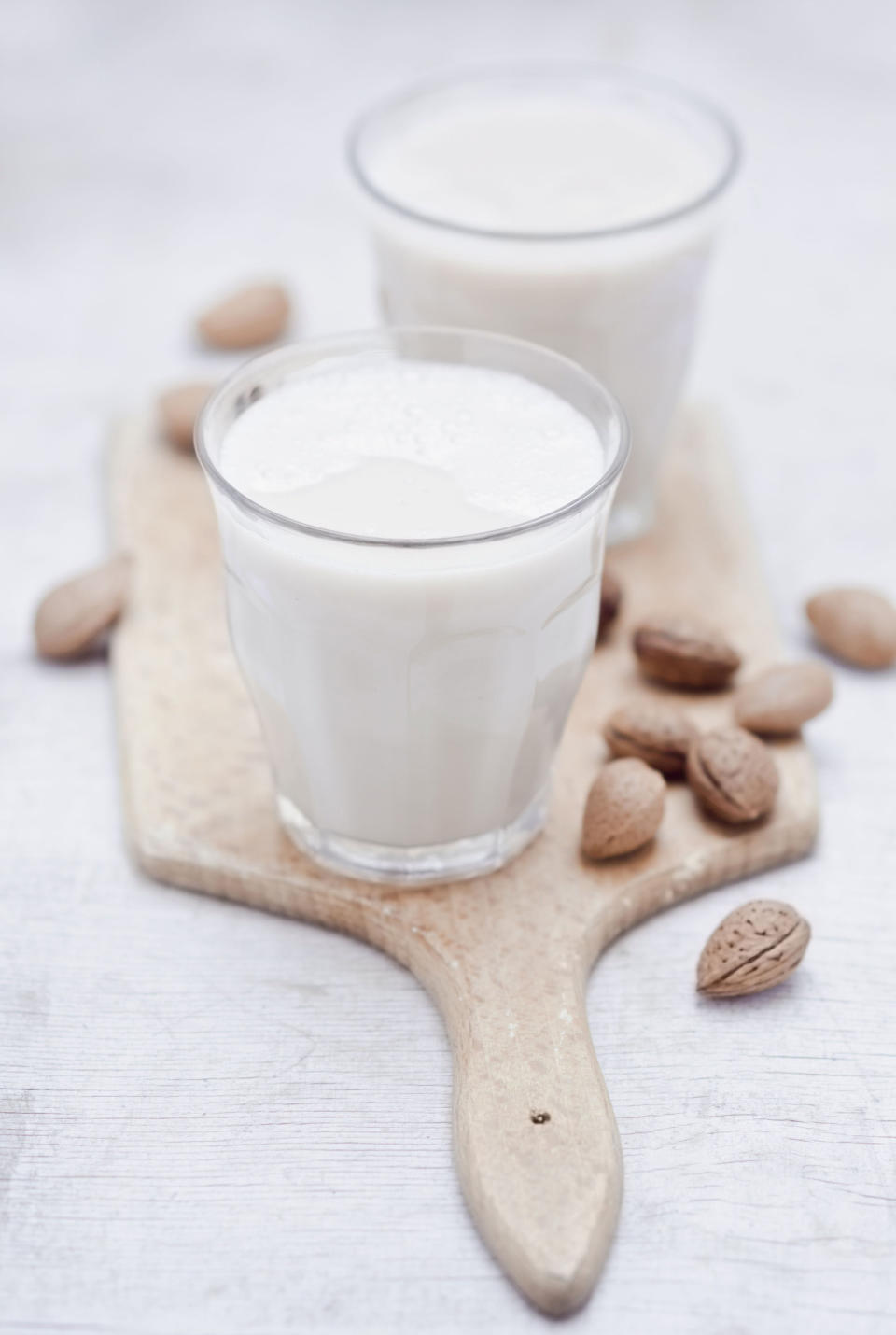Almond Milk’s Out – So Which Non-Dairy Alternatives Should We Be Drinking?

It’s a bit of a conundrum for people who don’t want to drink cow’s milk - or can’t. [Photo: Rex]
When news broke last week that almond milk is actually pretty nasty for the environment, we practically sobbed all over our keyboards. After all, almond milk is one of the UK’s most popular cow’s milk alternatives.
So if we shouldn’t be drinking it, but can’t or don’t want to drink normal milk, then WTF should we be dousing our cornflakes in?
Fortunately, a whole industry has been developed around creating alternatives to cow’s milk. Our choice of milk is no longer restricted to whether we buy the one with the green, red or blue lid but now includes many other alternatives to suit the growing number of lactose-intolerant Brits – or those people who are against the treatment of factory farmed cows.
Almond milk aside, we can choose from coconut, to rice to soya milk. And each one has its own nutritional benefits – and environmental impact.
So, to help you stop dithering over the non-dairy options in Sainsbury’s, we’ve dug a little deeper and looked into the pros and cons of each substitute.

Luckily, there are a number of non-dairy alternatives available. [Photo: Rex]
Soya milk
Soya is probably the most well known milk alternative and boasts many benefits. “Soya is high in protein and naturally low in saturated fat, making it a popular food,” says nutrition consultant Charlotte Stirling-Reed. “It also often comes with added nutrients such as vitamin B12 and vitamin D.”
But mixed research makes its use controversial. “There are two camps – one that believe that because soya contains estrogen-like compounds it may increase the risk of breast cancer,” says Stirling-Reed.
“The other camp suggests that soya could be decreasing our risk of breast cancer. However in the UK and USA soya milk is deemed safe and it has also been linked with other benefits such as a reduction of the bodies ‘bad’ cholesterol and also having a potential beneficial effect on the symptoms of menopause.”
Sadly, soybean cultivation isn’t doing the environment any favours. Today, industrial-scale soybean producers are speeding up destruction of Brazil’s Amazon rainforest. It’s estimated that between 2000 and 2005, Brazil lost more than 50,000 square miles of rainforest—a large portion of that was due to soybean farming.

Coconut milk may not be bursting in nutritional benefits - but it seems to be the best choice for the environment. [Photo: Rex]
Coconut milk
This is the wonder milk that’s taken the world by storm, but the bad news is it’s naturally much lower in calcium and protein than milk. “Coconut milk has a more creamy, nutty flavor but can also be quite watery,” says Stirling-Reed. “It’s now more readily available in supermarkets and shops in the UK and can be fairly inexpensive. As a milk it’s also fairly high in saturated fat – with more than is typically in whole milk.”
But on the flipside, it appears to be the most environmentally friendly non-dairy alternative. It requires less energy and water and produces fewer greenhouse gases than almond or soya milk, plus coconut farming is fairly low impact – it requires only a small amount of fertiliser or pesticides and may help sequester carbon.
Rice Milk
Rice milk is very low in fat and calories and, again, is a useful, non-dairy alternative to dairy foods. But, it’s not exactly bursting with goodness.
“It’s not a particularly nutrient-rich food and contains mainly carbohydrates and some calcium,” says Stirling-Reed. “It’s also not recommended for children under the age of five as it contains variable amounts of arsenic which, if consumed regularly or in large amounts, can build up in the body. It’s also a good reason why adults shouldn’t consume too much of it, too.”
There isn’t a huge amount of research on the sustainability of rice milk, but it’s believed that rice cultivation makes up to 1.5 per cent of the world’s greenhouse gas emissions – making it one of the largest man-made contributors to methane emissions.

Almond milk has been revealed as being really bad for the environment in the past few days. [Photo: Rex]
Almond milk
Despite the bad rap that almond milk’s had recently, we couldn’t not mention it. If only to make giving it up easier. “Because it’s based on nuts, almond milk has some of the beneficial vitamins and minerals we find in nuts such as the antioxidant vitamin E and magnesium,” says Stirling-Reed.
But don’t be too saddened by the news that it’s bad for the environment as it’s far more beneficial for you to simply snack on whole nuts, Stirling-Reed explains.
So, which milk alternative do you choose?
Although ultimately dairy has a much higher carbon footprint than any of the substitutes, it’s pretty depression to hear that they also aren’t all that sustainable.
The best thing to remember is not to consume anything in excess. Try cutting back your intake of whichever milk you tend to drink and aim to be more conscious of where your milk comes from.
Perhaps black coffee is the new green?
How Trend Almond Milk Is Having A Negative Effect On The Planet

 Yahoo News
Yahoo News 

